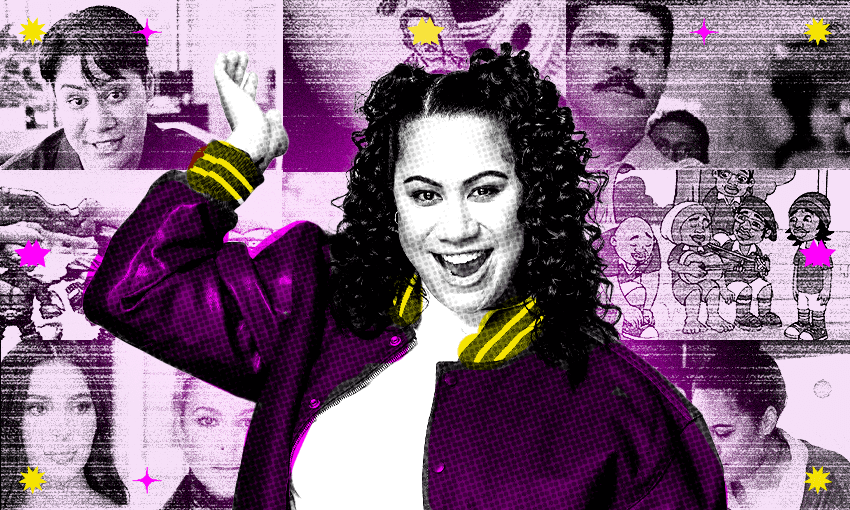Grace Tame has revealed recent media storms — including over her drug use as a teenager — prompted a visit to the emergency room.
Trigger warning: This article contains discussion of suicide that may be triggering for some readers
Former Australians of the Year Grace Tame and Rosie Batty have spoken out about the unrelenting mental toll of discussing the worst thing that ever happened to them, warning “trauma is a beast”.
Speaking at the Sydney Opera House’s All About Women festival, Ms Tame revealed that in the wake of recent media storms including over her drug use as a teenager, that she went to the emergency room to seek mental health treatment.
“I was actually in the ER the other day because I actually lost control and I was really scared,” Ms Tame said.
“I called up the clinic and I said, ‘I can’t, I can’t, I’ve stepped too deep into the shame spiral,” she said, making references to suicidal thoughts.
“And that’s real. That’s the toll that takes. That’s the price of shame. And so that’s why I wrote that open letter. You know, I’ve got a sense of humour, I can have a laugh.”
She said that while she could “make jokes” about the pressure, that the trauma was real and that the media had “a lot to answer for” after running a picture of her with a bong when she had made no secret that she had used drugs to manage trauma and her own self-harming behaviour.
“The media has a lot to answer for where it directs its shame. There is a disproportionate amount of shame that is still pointed towards people who do not understand yet what has happened to them,’’ she said.
“And that shame needs to be pointed squarely, not these people who are trying to figure out what the f**k happened to them. It needs to be pointed at the perpetrators of domestic violence, of sexual assault and child sexual abuse.”.
Ms Batty, who campaigned for domestic violence reform in the wake of the murder of her son, Luke by his father, said that the role was “bittersweet”.
“I think it’s overwhelming. I think impostor syndrome. I think, ‘all these people I’ve nominated against, you know, have done amazing work for decades. Who am I? I always felt very conflicted. And I just getting this award because my son was murdered?’”
She said she did not process that grief for many years.
“I was so afraid of failing and not being good enough or perhaps overcompensating and poured myself into it,’’ she said.
In recent weeks, Ms Tame said she had experienced a backlash over a campaign she had been involved in to fight for women’s rights amid complaints that there were too many white, middle class faces.
She urged feminists and progressive campaigners to not to use language that excluded people.
“There’s been a lot of criticism, and that’s part and parcel of the landscape. But, you know, people bring their heart and soul to this. And there’s a lot of trauma in it,’’ she said.
“I’m accountable for my mistakes. And that’s one thing that I’ve tried to do as best as I can, especially as someone who, you know, I didn’t go to university. I didn’t do gender studies. You know, and I don’t have as good a knowledge as I could have feminist history, and all the terminology, but I do my best to understand and to learn. And, and one of the things on this deep learning curve.”
Ms Tame said the “incredible journalist” and creator of the Let Her Speak campaign Nina Funnell, had nominated her for Australian of the Year.
“Rewind the clock to last year, to the 25th of January, and I was living in a housing commission area. I was an unemployed person. When I was named Australian of the Year. I didn’t ask for this.”
Ms Batty said for many years she poured herself into work to avoid dealing with the “deep trauma” of her son’s death.
“I mean, this is eight years since I lost Luke. And it is an overwhelming journey,’’ she said.
“I had a sense of purpose and meaning that gave me a reason to get up every day. So ultimately, it was my drive. It was my reason to keep living. So I would never change that.
“But what it did was isolate me, disconnected me, and I couldn’t understand why people didn’t keep in touch with me anymore.
“I can tell you during the first year of Covid, lockdown when other people were working out, and feeling dissatisfied or frustrated or pushing back on government restrictions, I was finally choosing which urn to put Luke’s ashes in. And it was uncomfortable and it was painful, but you have to eventually sit with pain. And we do avoid it, we drink, we smoke, we take drugs, we do anything to avoid pain.”
Three years after her son Luke died, Ms Batty recalled almost being killed when getting out of a taxi in Sydney.
“I do remember being in Sydney and I was racing from one thing to the other thing and it was three years after Luke died and I pushed up in my taxi door and our bus came past and took it off its hinges,’’ she said.
“And in that moment I sat there and thought, “Am I relieved I’m alive or am I disappointed? I’m still here. And I sat there and I realised I want to live. I have to live. And that bastard that took Luke cannot ruin my life.”





















Discussion about this post